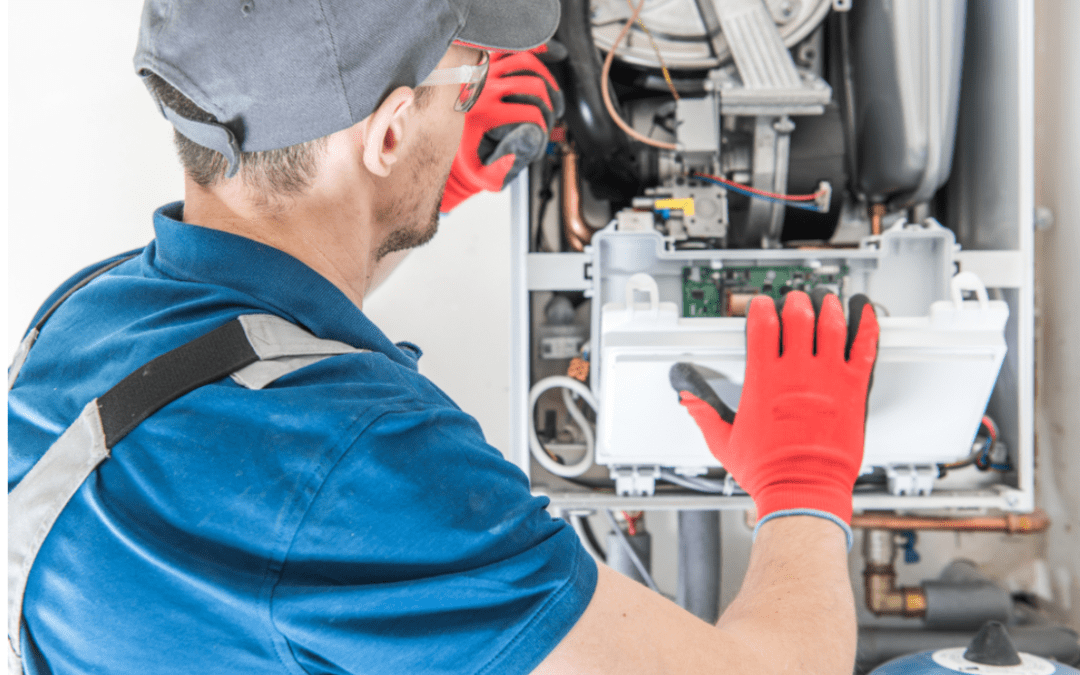These days, homeowners have more options than ever when it comes to keeping their families warm. Choosing the right heating method is important, so don’t assume whatever the house has in place right now is the best system. You should consider everything from mini-split systems to heat pumps in addition to more traditional options, but this article will focus specifically on two tried-and-true home heating methods: boilers and furnaces.
What They Have in Common
What boilers and furnaces have in common is that they convert fuel into heat, then transfer that heat throughout your home. That’s about all they have in common, though. The way these systems operate is quite different, as are their maintenance needs, installation costs, and effectiveness in cold climates like ours.
How a Boiler Works
Boilers are one of the oldest heating systems still in use in modern homes. There are different types of boilers, but both operate on the same general principles. They run on fuel, which could be heating oil, natural gas, electricity, or wood pellets, and use that fuel to heat water. Each unit has a special heat pump that moves the water or the steam that it generates to radiant floor heaters, cast-iron radiators, or baseboards throughout the home. There is no blower to keep working, but you may need occasional heat pump repair.
How a Furnace Works
A furnace works by using natural gas, electricity, or propane to heat air instead of water. That air then gets forced through your home’s ductwork by a blower, warming up the home. Furnaces tend to require more frequent heating repair services than boilers, but they’re more affordable in general.
Comparing Maintenance Requirements
Because they work so differently, boiler systems have very different maintenance requirements than those associated with furnaces. More specifically, boilers require much less maintenance than furnaces. While forced-air systems need duct cleaning, and heat pumps have
heat pump filters that need to be changed, boilers require little more than annual professional tune-ups.
Furnaces, on the other hand, need more frequent maintenance and repairs. The air filters need to be changed at least quarterly, and HVAC repair needs may be higher. The heating coils need to be kept clean, moving parts must be lubricated, and the blower motor needs to be kept in good working order.
Making the Right Choice
There’s no one heating system that provides the best possible option for every home. If you already have a central air system, it wouldn’t make much sense to switch to a boiler. It could even be cost-prohibitive because the equipment is so much more expensive.
Furnaces are less expensive to install than boilers, although they tend to be more expensive to maintain. They also pose less of a danger to the home during winter power outages. Because there is no water to freeze, there’s less chance of the system sustaining damage before the electricity can be turned back on. If the pipes in a boiler system freeze and burst, it can cause substantial damage.
If you’re planning a new build, you may still want to give boiler installation some serious thought. While they are more expensive than furnaces to install, they’re also less noisy, more energy-efficient, and support good indoor air quality, while furnaces tend to dry out the air and any ducted system can spread allergens.
The Importance of Professional Maintenance
Whether you have a boiler, a furnace, or a heat pump, it’s important to work with a professional to keep the system well-maintained. When you need home heating services, contact Castle Home Comfort. We provide a full range of maintenance, repair, and installation services, so call (217) 352-2800.

